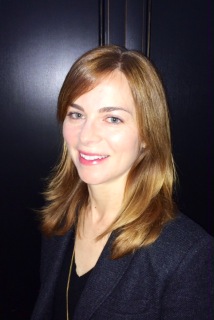
Kristin Whiteside, Ph. D.
Student, Adult Psychoanalytic Program
Hometown: New Orleans, LA
What was your pathway toward entering the mental health field?
It began in college with an initial interest in medicine, behavioral medicine in particular. I was curious about the behavioral aspects of health and why people make choices that are not in their best interest. I didn't realize it at the time, but I was on the path towards understanding unconscious motivation. Drawn to health psychology, I worked with a professor studying the physical and emotional benefits of writing. Guess what? Writing daily about your feelings about a stressful or traumatic event produced measurable changes in physical health as well as depression and anxiety. There was a personal connection to this work, as I was an avid letter writer and kept a journal. Validation of the benefits of writing initiated my interest in unconscious mental life and the mechanisms of expression, change, and growth.
And what drew you to psychoanalysis/psychoanalytic psychotherapy?
My interest in psychoanalysis resulted from the merger of my interests in the intellect and cognitive functions with emotional and subjective experience. Early in my training, I provided psychoeducational assessment, and I worked individually with students to develop learning strategies. As I developed relationships with my students, I saw the connection between their cognitive challenges and their ability to connect in a relationship with me. Focused on academics, we were discussing their brains, but I really wanted to learn about their minds.
I pursued my interest in the mind during an internship in a college counseling center, with the guidance of a psychoanalytically-oriented supervisor. The relationship with my supervisor and the theory opened a window beyond understanding patients in terms of symptoms and history. I learned through the experience that understanding could be achieved within our interactions and mutual feelings. The experience of thinking about a patient from an interpersonal point of view, considering when and how to intervene, and achieving change was compelling, and I have thus sought opportunities for psychoanalytic supervision and training ever since.
Tell us about your educational experience thus far at SDPC: Particular courses, experiences, teachers, supervisors/consultants that have been most formative?
Each of my instructors has left a unique mark on my understanding of the mind. As a beginning analyst, I have found it very useful to think about the various ways that one may listen to patients. As such, the coursework on modes of communication, countertransference, and thinking about the child within the adult have been particularly influential. I am enjoying the theoretical courses as well, which have presented diverse viewpoints on modern ego psychology to intersubjective theory.
How has your training in psychoanalysis or psychoanalytic psychotherapy affected a) your practice, and b) your professional development? Other areas of life?
I am in the process of building my private practice, and psychoanalytic training has benefitted my professional growth twofold. I have been able to work more intensively with patients and in particular have been able to address difficult feelings and resistance early in the treatment. In addition, my personal analysis has helped me to move forward towards my goals and aspirations, both personal and professional. It is not easy to integrate psychoanalytic training with one’s real life, but the relationships that I have developed with fellow candidates, instructors and supervisors have enriched my life and work immeasurably.
How else have you applied your analytic knowledge?
Psychoanalysis has been criticized for its lack of accessibility. Indeed, it is a costly treatment in terms of time and money. However, psychoanalytic thinking can and must benefit those who are not traditional candidates for psychoanalysis. In addition to my practice, I provide psychological services to students at The Preuss School UCSD, a charter school for disadvantaged students in grades 6 through 12. While there are limitations to the frequency and duration of the therapy that I provide, my work is psychoanalytically informed. Students in the counseling program learn to be curious, to look inward, and become more skilled at mentalizing. Further, they learn to speak about difficult feelings with an adult, and I have seen this generalize to their developing improved relationships with other adults in their lives. It can be challenging work with a population that is burdened with external stressors such as poverty, immigration issues, and acculturation challenges. However, students do learn to cope with their difficulties, and to take responsibility for their choices. As one student mentioned at the termination of therapy, “I learned that there is a reason for everything that I do, and that I can ask myself why I do what I do.”
Tell us about your practice and who you are most interested in working with.
In my practice, I provide psychoanalytic psychotherapy for adolescents (age 12 and older) and adults seeking treatment for depression, anxiety disorders, and relationship difficulties. I also have an interest in treating patients diagnosed with ADHD, Learning Disorders, and high-functioning Autism Spectrum Disorders. In the case of younger patients, I involve parents in the therapy in order to help them to better understand, cope with, and assist their children with their developmental needs.
Where is your practice, and how can potential patients contact you?
My practice is located in Encinitas just off of the 5 freeway at Santa Fe Drive. I may be reached at 760-707-7540.
